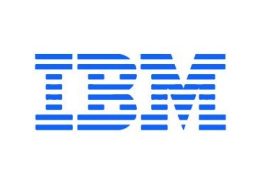Gold Market Radar (June 4, 2012)
For the week, spot gold closed at $1,624.10 up $51.07 per ounce, or 3.3 percent. Gold stocks, as measured by the NYSE Arca Gold Miners Index, beat bullion with a 3.6 percent return. The U.S. Trade-Weighted Dollar Index gained 0.6 percent for the week.
Strengths
- Confidence in the gold market got a big boost on Friday as the change in U.S. Nonfarm Payroll jobs number came in at just 69,000, falling far short of the 150,000 expectation, thus increasing the likelihood that the Fed will take steps to stimulate the economy.
- The yield on the U.S. 10-year note plunged to 1.45 percent and two-year German note yields actually drifted into negative territory. Although inflation is pretty tame, real interest rates are negative and gold historically performs well under such conditions.
- John Embry of Sprott Asset Management was certainly ahead of the curve when interviewed for a story on Mineweb this week and noted he doesn’t see a recovery of any substance whatsoever in the U.S. Everybody is just so focused on Europe at the moment. Embry points out that the most shocking statistic that has come out in the last nine months is the fact that last year the U.S. monetized 61 percent of its budget deficit, which is staggering, yet no one seems to care.
Weaknesses
- Silver did not participate in the rally this week but with trading in the new silver contracts on the Shanghai Futures Exchange its prospects could improve. Some traders speculate the contracts to be bullish for silver prices, similar to the start of trading in gold futures in China, and that the venue could make market manipulation more difficult. It is believed that this move signals China clearly wants more control over the precious metal’s pricing policy. Historically China has used silver as a currency.
- While Greece has been at the forefront of most of the European woes, the shift in focus to Spain is a real worry as this problem cannot be effectively addressed. Something like 100 billion euros were withdrawn from the country in the first quarter and, much like Greece, there have been issues with citizens taking their money out of local banks. Last week trading in shares of Bankia, the fourth largest Spanish bank which was nationalized earlier this month, was suspended as it became apparent that the bank requires more than 15 billion Euros ($19 billion). Bankia holds around 10 percent of the country’s bank deposits.
- The combined European nations don’t have the wherewithal to bail Spain out from its enormous debt. Implementing further austerity measures to allay its debt problems when a quarter of its people (and nearly 50 percent of its youth) are already unemployed will prove to be very problematic.
Opportunities
- Robert Cohen, a precious metals portfolio manager at GCIC, was interviewed by the Gold Report and pointed out we are at a unique place in history where the metal prices are robust and yet the stock prices are the cheapest he has ever seen relative to underlying commodity prices. Investors have turned up their risk dials resulting in lower stock prices with few willing buyers. Cohen believes it is a good time to accumulate positions before QE3 comes.
- Industrial and Commercial Bank of China Ltd. (ICBC) is the world’s largest bank by market value and is the top player by volume on China’s gold and future exchanges. It was reported that ICBC is seeking membership of overseas exchanges and aims to become a major global bullion market maker. This would allow ICBC to grow its financial products to service the supply chain of the bullion market, including loans to miners and smelters, physical gold leasing, hedging and brokering.
- Ian McAvity noted that gold is increasingly trading like a currency and believes most of the speculative money has now largely been chased out of the gold market. But he states that the attitude of many of the U.S. banks is that what is happening now is very much a European problem. “If a European bank blows up, that problem will cross the Atlantic in a Nano-second because the Federal Reserve was bailing out some of the European banks in 2008-2009 and they’ll be doing it again.” Ian raises the question, how can you borrow your way out of a debt problem? With money coming out of the euro and the dollar not really in that much better shape, Ian believes that some of that money will find its way into the gold market, pushing prices higher.
Threats
- Europe is China’s largest export market and it is a very important source of trade finance for its industry. Much like 2008, trade in commodities nearly came to a halt as shippers could not obtain a Letter of Credit from a financial institution. Problems in Europe will roll over to China. Economic growth in India showed its weakest quarter in roughly nine years and inflation is still stinging their confidence.
- In Argentina, the mining business just got a little harder. As of this week, mining companies will have to submit quarterly estimates of their purchasing needs which will need approval by a special working group at the Mining Ministry. It is feared the government review process could delay the deliveries of mining inputs by an additional six months.
- Since February, mining companies have had to obtain approvals from a number of government agencies before they can import goods or buy offshore services. Mining companies have also had to create a separate purchasing department dedicated to substituting imported goods and services with Argentinean products and services. Currently it is estimated that as much as 70 percent of inputs used by the mining industry have to be imported.












